Of the many pleasures writer/director Paul Weitz delivers in his terrific new movie, Grandma, starring a Lily Tomlin in a performance for the ages as a broke, lesbian poetess reconciling her past after her eighteen-year-old granddaughter shows up seeking help with an abortion, is a stunning centerpiece scene between Tomlin’s irascible matriarch and her jilted ex-love, played with very surprising candor and vulnerability by Sam Elliott. Their lengthy scene—she needs to borrow money but he wants an explanation for why she ditched him many years prior—is, bar none, a virtuoso piece of screen acting and a take-note reminder to Hollywood that we care about movies only as much as we care about their people.
Equal parts character study, road movie and personal reckoning, Grandma is one of the year’s best-acted yet smallest pictures, all about a superb screenplay expertly directed, and performances that consistently surprise us over the film’s brisk, 80-minute running time.
Weitz, the filmmaker behind American Pie, About a Boy, American Dreamz, Being Flynn, Admission and several other offbeat studio pictures, has managed to retain his personal voice in each despite the occasionally broad detour like Meet the Fockers, Quickly written on a notepad in a coffee shop and shot in a mere handful of days, Grandma ranks with About a Boy as, perhaps, Weitz’s most incisive character dramas.
Elliott, the classic Hollywood star with patented masculinity and his own brand of charisma, has been masterful at suggesting stoic confidence across decades and genres. The last of his kind actor, who at 71 is tall, lean, fit and as virile as the day he took to the Southern California coast in 1976’s Lifeguard, becoming a bona fide movie star before his breakthrough performance in 1986’s Mask, as a strong, silent biker opposite Cher’s turn as the mother of Rocky Dennis. Elliott’s 2015 one-two punch of Grandma and opposite Blythe Dannier in I’ll See You in My Dreams marks a wholly unexpected new chapter in his storied career.
I caught up with Weitz and Elliott recently to discuss their picture’s surprising characters and the mechanics of that terrific scene, as well as Weitz’s thoughts on getting studio movies made today and Elliott’s take on subverting his image and Grandma‘s on-set dynamics. It is a performance, with Tomlin’s, that deserves to be very near the top of the Oscar conversation once awards season kicks into gear.
Elle Reid is a completely new character. I tried, but could not find anyone quite analogous. She’s caustic, difficult, brilliant, self-aware, funny, sad and then very worthy of compassion. Where did she come from?
Paul Weitz: She came from Lily. I hung out with her on the set up Admission. Elle is something that we associate with being beautiful, which is that she is still learning. She is very accurate about how silly and self-defeating life can be. Difficult, but at the same time she is a very loving person. Those two things coupled together, to me, are sort of the point of being human. To be so flawed, but also able to change—that is really the case with this character. One of the characters in Grandma is 18 years old, and she doesn’t know anything at the beginning of the film. But she gets to reminds us how great it would be to be stuck in a car with Lilly over the course of an entire day.
She is a real straight-shooter. She tells us exactly what she feels and is a self-avowed misanthrope. Gradually we learn more.
PW: Yes, someone said she reminded him of the character of Stifler from American Pie. This is a person who says things that other people may only think and is like a bull in a China shop, as is her daughter, played by Marcia Gay Harden. Gradually we learn so much about her through her relationships; specifically in her relationship with Sam’s character, which is something very surprising to her granddaughter as well. You wouldn’t have imagined that she would have split in the middle of the night like that. Because the plot is simple, I was really able to explore that character.
The scene between Lily and Sam, which is the centerpiece of the film, is perhaps the best-acted 12 minutes of the year in an American film. Sam, can you give me some insights into opening yourself up in those moments? You certainly are giving us a different glimpse into yourself than we typically might expect. It is very raw.
Sam Elliott: For me, it is the words. In the beginning that is what is on the page. And when this thing got dropped in my lap, I just said ‘Wow, this is the best piece of writing that has ever been offered to me, ever.’ There was no question whether I was going to be part of this film. I had never worked work with Paul and only knew Lily from one brief encounter in a social environment, yet I felt part of at the moment I walked into there. She and I had no real relationships in real life, and the characters had been together for fourteen years, yet it all just seemed right. Lily is one of those actors that are there for you. That is not that common; some think it’s all about them. My mission when I went to the set was to do what Paul wanted me to do as the writer and captain of the ship. He was the guy I wanted to satisfy and he was incredible. He didn’t say a lot, but boy when he said something—it was right on.
PW: The reason I like to direct my own writing is that I don’t need to be precious about it. For me, it is about being comfortable enough to be loose and give over to the characters and give the movie to the actors, which is absolutely what happened. We read it through and I had an instinct Sam would do something chemistry-wise that would be really interesting. I also needed to make sure that Lily, as a character- she had been with women before, but I needed to make sure that she was okay being with someone who was very attractive, both physically and intellectually. And there was the kiss. Sam’s character says he will loan her the money if she gives him a kiss. And then things get interesting, because not only do you see the separation between the two, you can also see that there was chemistry there between them. I am happiest as a director is when I have done enough homework, but that I don’t know what is happening next and I’m just an audience with the actors are doing. And then it’s about creating elbow room and keeping my elbows out so that the actors don’t have to think about anything beyond what they are doing and can lose themselves in the scene. That is where acting and writing completely overlaps. You lose yourself.
It was so exciting to see where that scene was going, and I could also see where a director could possibly fail, as there was a point where I came over to Sam and shared a thought with him. And he said, ‘I know you want me to pull it back in.’ And that was so far from what I had wanted. And I told him to keep going in whatever direction we wanted to. There are a lot of actors, and I understand this, who don’t want to try something new because in the past they have done so and the director has picked the wrong takes. During this scene, I knew what Sam was doing and saw his generosity to do it. It was incredibly exciting. And I really felt like the character was being lived in front of me. So I’m really thrilled to hear you say that.
Yes, well during this scene I completely forgot about the money issue and realized it was about something else entirely.
PW: It is like a movie within the movie.
Sam, you are having a great year with another highly regarded performance opposite Blythe Danner in I’ll See You in My Dreams. That is yet another unexpected performance.
SE: Thank you! I don’t know why—because I am 71 years old—but all of a sudden, here are two of the best roles to come around a long time. I’ve never had a phase like this in my entire career.
What is the best part about your job as an actor?
SE: I think just the fact that I’m doing something that I dearly love. People ask me sometimes with my favorite role ever is, and I think the thing that really stands out for me is not so much the end product but the experience of making it and the people. That is the best part of the job. You work with some schmucks along the way too, but that camaraderie is something that you can’t explain. It’s like a gypsies going along.
And then you break down and do it all over again on another picture.
SE: Well, if you’re fortunate. You usually don’t go from one to the other and have another great encounter. This was the briefest of encounters because I was only there for two days. And I made a couple of friends that I think I’m going to have for a long time to come, and maybe a third one—maybe blondie too (referring to Julia Garner).
Paul, how hard is it to get a movie made now. Certainly Grandma was low-budget and smaller in scale, but I believe I was reading an interview with Woody Allen some time back where he mentioned that financing is difficult every time. Given that Hollywood is dominated now by franchises and tentpole movies, what is that like for you?
PW: I don’t think it’s hard to make a movie; you just have to be okay with making the movie for as little as you can possibly make it for. My grandfather was cronies with Billy Wilder and a number of other golden era Hollywood filmmakers, and for the last 20 years of his life, Wilder wanted to make another film. He had ideas and tried to get them in front of the studio. And I always thought it was a shame he couldn’t just go get the dough somewhere and make it independently. I always wondered what kind of film he might have made with no studio involved. The trap sometimes is thinking you need a certain amount of money for something. That’s always the case if you doing something like a sci-fi movie, unless it is something like Moon which was done very compactly. I wonder how much money they had to make the great, seminal movies of the 70s.
The good thing here is that it was so clear to me that while, for me, Grandma was so much lower than anything I have ever done before, but the acting is irreducible. And sometimes when you have more money, it gets in the way of the acting. The writing is what it is as well. And with the comedy, certainly if you have 10 million more bucks it doesn’t mean the movie is going to be funnier. There are certain things—and happily they are the things I love the most about filmmaking—that are not budget dependent at all. So as a filmmaker, I don’t want to take a dollar more than I need, because every dollar you take you get more pressure from studios worried about making that money back. So I don’t think it’s hard, and I would be perfectly happy to go back and make another studio film, but also I would be very happy to emulate Sean Baker, who just made Tangerine on his iPhone.
Do you get disappointed when a movie doesn’t quite hit? For example, American Dreamz, in my view, is quite underrated.
PW: Thanks! Yeah, I love American Dreamz. The great thing about that one is that I met Marcia Gay Harden on it, and when I called her up for Grandma she agreed to do it without even having read the script. It was really touching that she had previously had a good time working with me. And she is so fantastic in this one. I would say American Dreamz, and maybe even more so, Being Flynn, which ought to have been called Another Bullshit Night in Suck City, and I am very proud of that one. But the studio felt like they needed to be able to advertise it, so they couldn’t use the title. So I think the title change really screwed that movie. And then you have a situation like this, in which I haven’t the faintest idea how it is going to do, and I hope it does well across the country, but at the same time I know people are going to see this film and my primary thing is that I want people to see these performances. I also think there are a lot of good and not reductive lessons in the film.
Some might call Grandma a ‘women’s movie’ in a sense, given that with the exception of Sam the story is driven by strong women. What are your thoughts on the state of women in Hollywood right now?
PW: I think people vote with their pocketbooks, and I think it’s a healthy thing that now even with a sci-fi movie you’re dealing with a female protagonist like Jennifer Lawrence in The Hunger Games. There is a (ticket buying) segment of the population not playing first-person shooter games, and that is largely women.
Sam, tell me something about working with Peter Bogdanovich on Mask, one of your most memorable performances.
SE: Wow. I loved Peter. He and Cher kind of butted heads. I really connected with Peter. One thing I remember about him, and it is the only time I had ever seen a director do this, but every morning he and the cinematographer, Laszlo Kovacs, walked around and talked about all of the shots that were going to do that day. Everyone could see them around the set and I don’t think anyone expected them to be so specific about the process. I really got on well with Peter. Right now, I am doing a little arc on Grace and Frankie, and one of the guys that produces that show is good friends with Peter. I haven’t seen him since Mask and I am about to see him again. Peter is one of those guys that got put behind the eight-ball or whatever. Back when we were doing Mask, there was this whole fucking thing about the music that came up, and how he wanted Bruce Springsteen. This producer that I mentioned talked about the fact that there is a new version of the film with Springsteen’s music.
Because Rocky Dennis was a Springsteen fan, if I am not mistaken.
SE: Exactly.
I believe the first film I saw you in was The Legacy, a horror movie back in 1978.
SE: Sure. That’s where I met my wife. That was the legacy for me.
And now that little movie is getting a Blu-ray treatment.
SE: Is it really? It’s not a great film.
But certainly a fun one.
SE: It was a fun film. It was 1978 and we were in London in the middle of a cold winter. It was a very romantic encounter with Katherine, I must say.
Paul, what would you like to do that you haven’t yet done?
PW: I want to continue to learn something every time I make anything. I prefer not to be learning through failure, but I will take what I can get! I think there are still things I don’t quite understand and which I’m still interested in exploring.
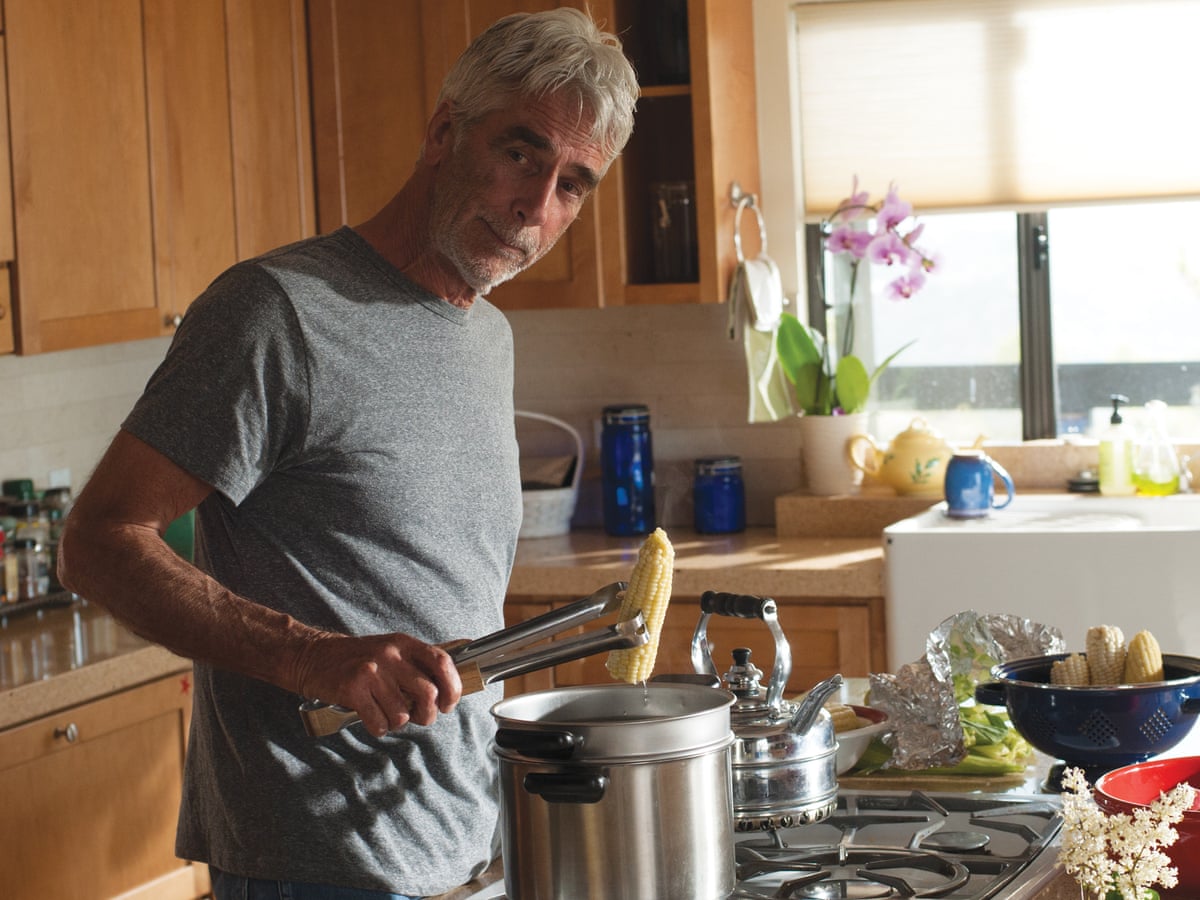
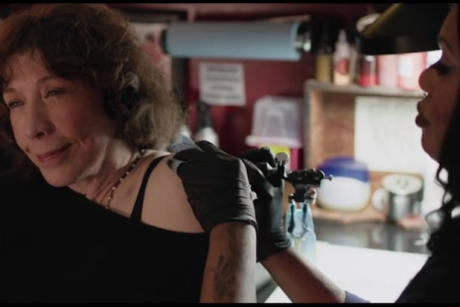
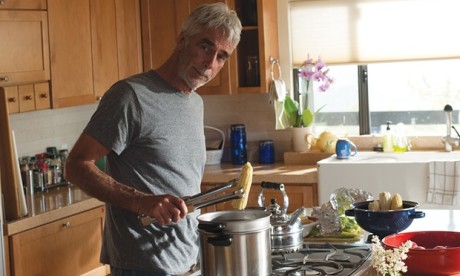
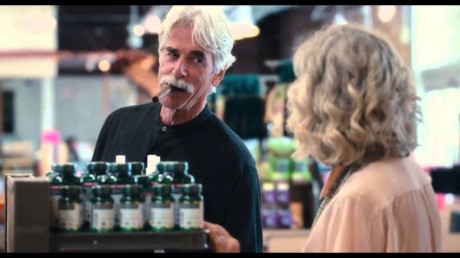
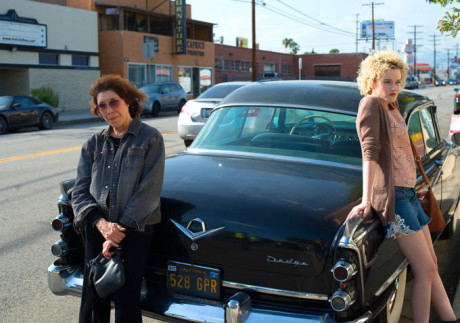
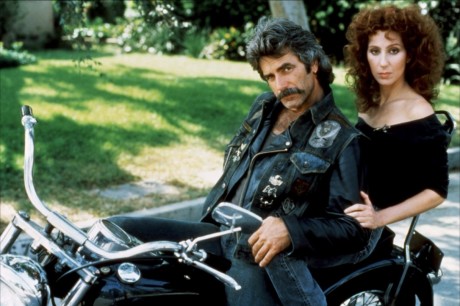

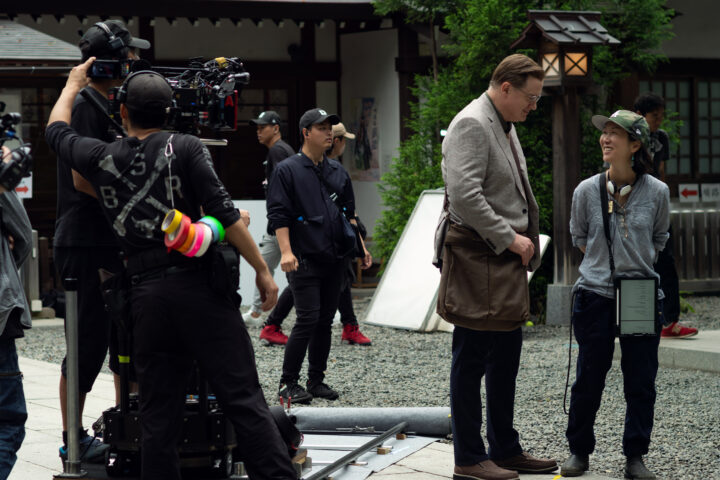
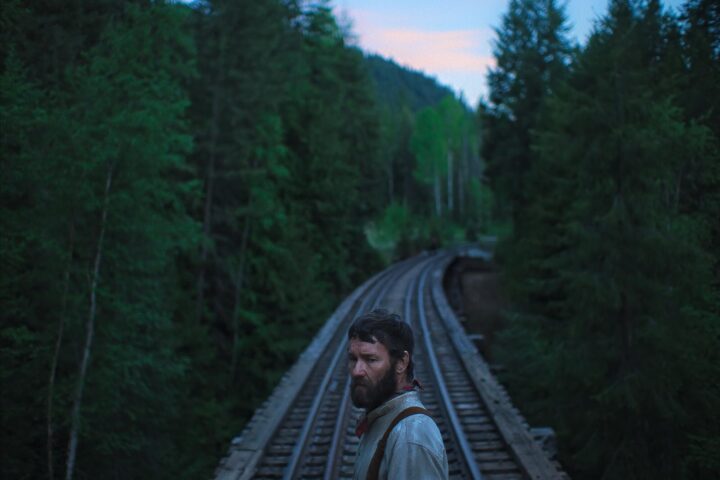
It’s pretty disturbing the director tried to play up some sort of chemistry with the kiss between a straight man and a lesbian. The first image you see here says a lot. What a homophobic & sexist perspective of this film.